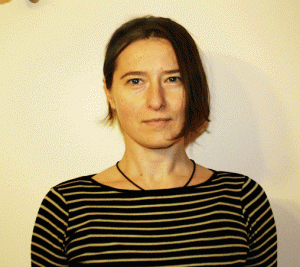
Visual Communication in East-Central Europe since 1945: Comparative Studies
-
- Course Duration:
- April 20 - May 15, 2015

The seminar was devoted to the transformations of the visual culture in the East-Central Europe, during the second half of the 20th c. Its purpose was to trace main visual determinants of our cultures. The participants were encouraged to define status of the visual communication in our region, while exchanging and comparing examples from Poland and Ukraine, adding some analogies from Czech Republic and Lithuania. Various contexts of the visual messages were taken under consideration (i.e. graphic design, photography, film, exhibition activities, urban planning).
Among the topics to be discussed during the seminar were: pictograms and systems of the visual communication in urban spaces, popular depictions of cybernetics and space's exploration, imagining the 'West' in Eastern Europe during the Communist Era, games and cartoons in Eastern Block countries, visual information in the medicine and healthcare, the idea of iconosphere, current trends in the use of images (digital stock images, copyright).
The course consisted of 8 sessions that included an introductory lecture and a general analysis of visual resources. The classes were held in the format of a seminar. The working language was English. Before each session, participants received reader of literature proposed for discussion. The final task for the participants was to write a short essay on the topic of the course.
During the seminar the participants were encouraged to define status of the visual communication in our region on their own. Students were asked to prepare several sets of visual material that could serve as illustrative resource for the subsequent seminary topics (eg. signs of national identity, local games and cartoons, images of space exploration, urban information signs systems etc.). They presented their collections to the group. Preparing one complex presentation dealing with the chosen visual communication’s phenomena (including: the theme formulation, hypothesis, bibliography visual and descriptive parts) was a form of the final seminary work.
has a background in Arts and Humanities. She works in the visual studies areas of document analysis, print history, history of science and curatorship (The Print Room of Polish Academy of Arts and Sciences since 2007- as well as the Faculty of Humanities at The University of Science and Technology in Krakow since 2008 – ). She holds a PhD in Art History (The Jagiellonian University, Krakow, 2006), and MA in Art History and Religious Studies. Experienced at curating exhibitions in the field of history of science.
Dr. Anna Olszewska